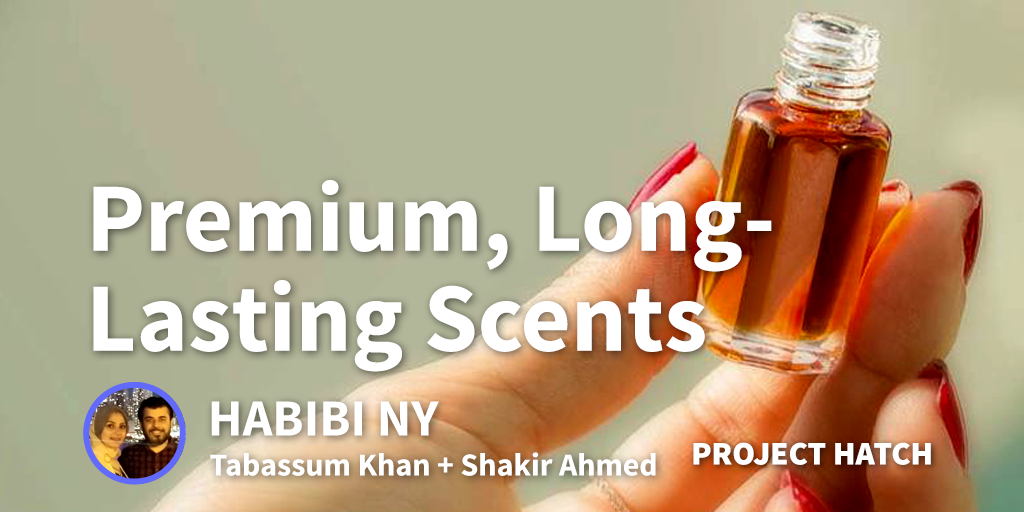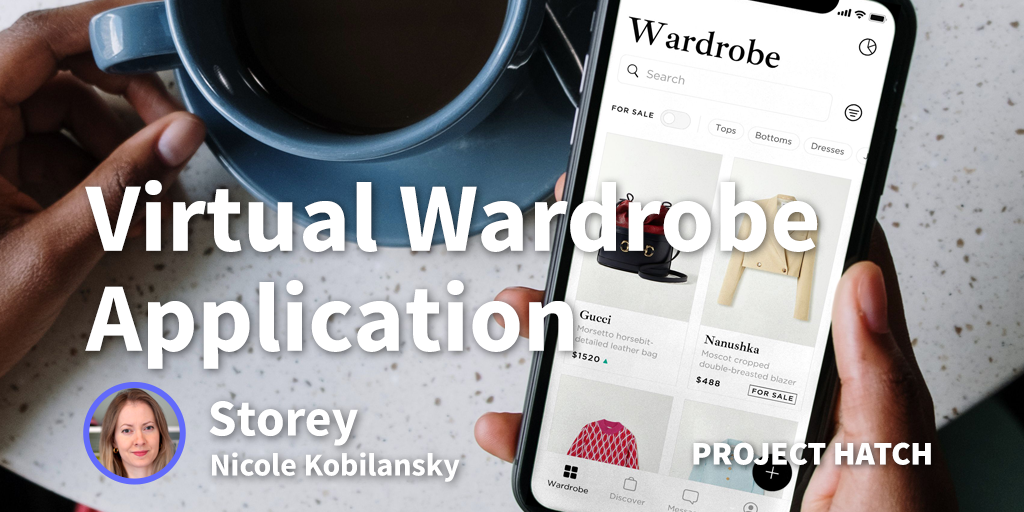I stopped to visit a cousin on my step mother’s side of the family while on vacation. He was a beekeeper and wholesale honey distributor. He had created a few flavored honey varieties that were now being sold direct-to-consumer at farmer’s markets in his area. He mentioned that ‘someone could take the product down to a major metropolitan area and do well with it’. I apprenticed under him to learn the trade. I thought about this and the potential to sell a high quality, staple food product with a twist - three weeks later, I had a table at my local farmer’s market. In all honesty, I produced and sold my own product just to make a little extra money. After a year, I was able to transition away from my banking job.
I don’t remember who the first three customers were. However, you should know that I sell direct and in person - particularly at farmer’s markets, shows, and events. Foot traffic is my bread and butter. As long there is a steady stream of people - a well attended market or event - customers will be present. I found a market home at the Ann Arbor Farmer’s Market- it is one of the largest I attend regularly. That being said, I do not rely only on new customers. I offer a sign-up to my mailing list with every new customer. If they sign up, they get a honey based recipe once a month. This transitions to online sales with each mailing.
How did you validate the idea?
My cousin actually validated it for me. When we first discussed selling in additional markets, I asked him ‘How do I know it will sell.’ He replied ‘People always gotta eat. And people will always pay for good food.’ He was right. Once I started selling and developed a customer base, word of mouth took over and the referrals started. Repeat online sales served as another level of validation.
Did you have any experience/expertise in the area?
I apprenticed with my cousin and bee keepers in my area. Then, I started keeping my own colonies. From there, I grew my hive lots, started leasing additional hives. Eventually, my customers would ask for single pollen honey from flowers that didn’t grow in my area - so I found beekeepers in different parts of the world who DID raise specialty honey. Then, instead of buying their product, I created underwriting and management agreements - in some instances I would finance a number of hives being erected at a site of my choosing and would split the beekeeping duties with the lessor.
Have you raised any money? How much?
I am completely self financed. I live a fairly Spartan existence and push a large portion of my revenue back into the company. I avoid debt simply because I am not comfortable with it. Hey Honey was started to help pull me out of the aftermath of a bankruptcy after the 2008 crash. The loans on an investment property wiped me out. Once the crash was over, I made a conscious decision to stay away from owing anyone. While not having debt has limited my growth, it has greatly improved my flexibility with regards to cash management and it expedites ROI turnaround.
Who is your target demographic?
They range in age of 25 to 55 with a core of 30-48 year old women. They tend to be foodies and shop at farmer’s markets. Most importantly, they are honey enthusiasts (that is an actual thing).
What is the funniest/most strange customer request you’ve had?
I have had a few customers with Lyme Disease ask if they could come to my apiary just to get stung! There is a movement for ‘stinging therapy’ for Lyme Disease whereby the venom in the bee sting counteracts the symptoms/bacteria of the illness. The people who seek out this form of treatment have the beekeeper hold the insect against the infected person’s skin. The bee becomes irritated and stings the disease sufferer. Before you ask - no, I do not offer this service.
What happened in the early stages?
I didn’t fund it. I was a hair’s breadth away from being broke. My first allotment of product was consigned to me i.e. I split the profit on the sale and covered the inventory cost AFTER the sale. Eventually, I used my profits to have my own inventory and hives to produce my own stock.
I have grown Hey Honey without any partners up to this point. Initially, my cousin Ned and I created a working agreement - I apprenticed under him, he managed hives (until I could handle my own) and I handled product development, new flavors and distribution. A big part of sales was creating food pairings for the different honeys (coconut honey for barbecued shrimp, plum for pork tenderloin, etc.)
Finding employees is the hard part for any business. One tactic we are exploring is approaching colleges and recruiting students for seasonal work as interns for college credit/work study. Michigan (my home base) has a number of schools with agriculture departments of sustainability departments. Our production is seasonal and coincides with most students Summer break. This way, students who have an interest in farming/beekeeping are the market group of employees we want to attract. The labor cost is inexpensive but the work loads are very simple. Two to three intern/apprentice beekeeping could bottle most of our honey for the year in approximately two months. This would free me up to spend more time selling larger programs involving honey.
Did you run any companies prior?
I never ran a company before Hey Honey but I did sell large print direct marketing campaigns that required complete project ownership. This began with ALOT of cold calls, eventual relationship building, quoting and estimating - and when I won a project, I was required to manage all aspects of it - material purchase, printing, assembling, freight, scheduling and delivery. Next best thing to running a company.
Again, I only started selling honey to make a little extra money but figured out very quickly that I could grow it as large as I wanted. I am absolutely AWFUL at taking orders or direction from other people. I never felt like the money was enough and I had a hard time with managers - especially if their objectives ran against mine with regard to project/client management. After all, they never had to toil through countless rejections before they found a customer - and often, it took months.
My father had his customary panic attack when I revealed I had changed my career - this one was especially bad when he learned that I was selling honey in place of a job. The panic subsided when I mentioned I was making three times what I did at my day job (and working half as hard). Everyone else has really embraced what I do. I am known as ‘Jay The Honey Guy’ all over Southeast Michigan. People really take hold of the story when they hear it - I get a great deal of ‘street-cred’ for being an entrepreneur, especially being one who sells flavored honey.
What motivates you when things go wrong? What is the end goal?
Things can go wrong at any time and I realized VERY quickly how much I enjoy having my own shop and NOT answering to another person. I refuse to go back to working for someone and I can no longer take orders from another person. With that said, if something goes wrong with my business I HAVE TO find a solution - if, for nothing else, because I refuse to go backwards. The goal is to continually diversify. I don’t see myself selling the company off - I just identify it as part of who I am now.
Advice for someone starting out - be consistent and persistent. My business is running along at a strong clip after 9 years but there were plenty of days that I did not want to set up in open air markets (early in the morning in the middle of a torrential downpour), but I did it anyway. My customers remember that and have stuck with me. They also spread the word about me which is responsible for my growth.
My email list is what drives the bulk of my online sales. I sign people up when they buy from me at my booth and then send them one honey based recipe a month. The mailing includes links back to the site so they can make additional purchases - previous buyers have the highest probability of being repeat buyers.
Employees (or larger strategic partners) are what I need for growth - I am working on both. Ideally, I would like to spend all my time selling and I will offload the harvest and bottling processes entirely. A strategic partner would allow me to build a program to sell to without needing to be present. That is the next step.
How do you protect yourself from competition?
You don’t protect yourself from competition - there is ALWAYS competition. You just need to be a better marketer (that, and have a superior product if you can). Having a long history as a salesperson doesn’t hurt either. Customers buy from people they like - if they like you, they will come back to you. I don’t worry about someone else’s products. They have what they have and I have what I have and we have our own niches. No patents/trademarks.
What are the top 3-5 apps that Hey Honey could not run without?
I only have one. MILE IQ. It tracks your drives and lets you classify them at the end of the trip as ‘Personal’ or ‘Business’ so you can apply mileage expenses appropriately for taxes. One year MILE IQ got me a $16,000 mileage deduction (I drive everywhere for this business).
What are your favourite books and podcasts?
Favorate books- the Four Hour Work Week - Tim Ferriss and ‘10X’ by Grant Cardone
Podcasts- Joe Rogan Experience, The Side Hustle Show, Dirty Secrets of Small Business, Your Mom’s House.
What are your next steps?
I am working on a program that I have to keep close to the vest for right now but it does involve liquor stores and airlines. As far as products, I am resurrecting our old honey & bees wax lip balm line and working with a local distiller to produce a honey cordial (that will take a long time to roll out - but our test batches were well received. In 5 years, I would like to be partnered with a larger facility to handle all my bottling and have the program I alluded to in higher end liquor stores.
I carry around 25 core items but closer to 70 items total when you include monofloral honey/other bee keeper lines from different parts of the world.I am not one of your larger interview subjects - I did over $250K in the past 18 months - but that was with no employees and limited production facilities - I do it all - soup to nuts.
And once again - I have no plan to sell.
| Company Name: | Hey Honey |
|---|---|
| Founder: | Jay Jermo |






